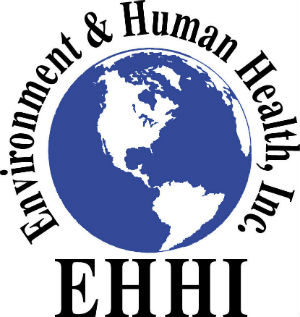OpEd: Expand Connecticut's Bottle Bill, Reduce Plastic Waste
The amount of plastic produced since 2010 is more than was produced during the whole last century. Packaging amounts for 40 percent of the plastic uses. Because plastics do not biodegrade easily, they fill up landfills and end up in our oceans. In the ocean the plastic eventually breaks down into small particles where they can be taken up by fish and thus can enter the human food chain. There have been reports of whales dying from eating so much plastic that it has killed them and there are now studies showing that mussels and clams can take-up small particles of plastic as well. As the world becomes increasingly aware of the seriousness of the plastic waste issue, more towns in Connecticut are looking for ways to reduce people's plastic waste.
Single use plastic bags are getting the most attention, as these bags have a working-life of 15 minutes and then they enter the plastic waste stream. Many towns in Connecticut have banned them and the state has many bills that look toward banning them as well. This is a very important initiative, as it is critical to get people to use reusable grocery shopping bags and to stop using single use plastic bags. However, there is also another effort that needs to be enacted if we are to make a significant difference in plastic reductions in this state. Connecticut needs to expand its "Bottle Bill Redemption Law" of 1978. Connecticut's Bottle Bill, as it presently exists, includes the following beverages: beer, carbonated soft drinks, including mineral waters and soda waters, water, including flavored water, nutritionally enhanced water, and any beverage that is identified through the use of letters, words or symbols on such beverage's product label as type of water, but it excludes juice, iced teas, mineral waters and sports drinks. This Bill was enacted in 1978 before juice, iced teas and sport drinks commanded such a large portion of the beverage market. These categories now need to be included in an expanded Connecticut bottle Bill. When Connecticut passed its Bottle Bill it was very forward thinking — but today it is way out of date. Maine's Bottle Bill is far more current and could be used as an example for Connecticut. Maine has a 5 cents redemption fee for all soda and non-carbonated drinks in the state. This means that Maine has included juices, ice teas plus sport drinks. Maine's Bottle Bill is very inclusive and can serve as an example as an important way to get plastics out of the waste stream. In 2015, the Maine legislature passed Public Law Chapter 166 "An Act to Promote Recycling Program Integration and Efficiencies" which transferred administration of the returnable beverage container act, a.k.a. "the Bottle Bill" program to the Department of Environmental Protection. The original Maine "Bottle Bill" began in 1978. Over the years, the bottle bill has evolved into a successful recycling program for glass, metal, and plastic beverage containers which reduces litter, conserves resources, and saves energy. Placing a monetary fee on beverage containers means that most of them will be returned and redeemed for money rather than so many of them entering the waste stream. As recycling costs continue to rise for towns and states, the bottle bill redemption programs will begin to look more and more attractive to towns, cities and states. Nancy Alderman is President of Environment and Human Health, Inc. Published in the Connecticut Mirror, Feb. 5. 2019.
